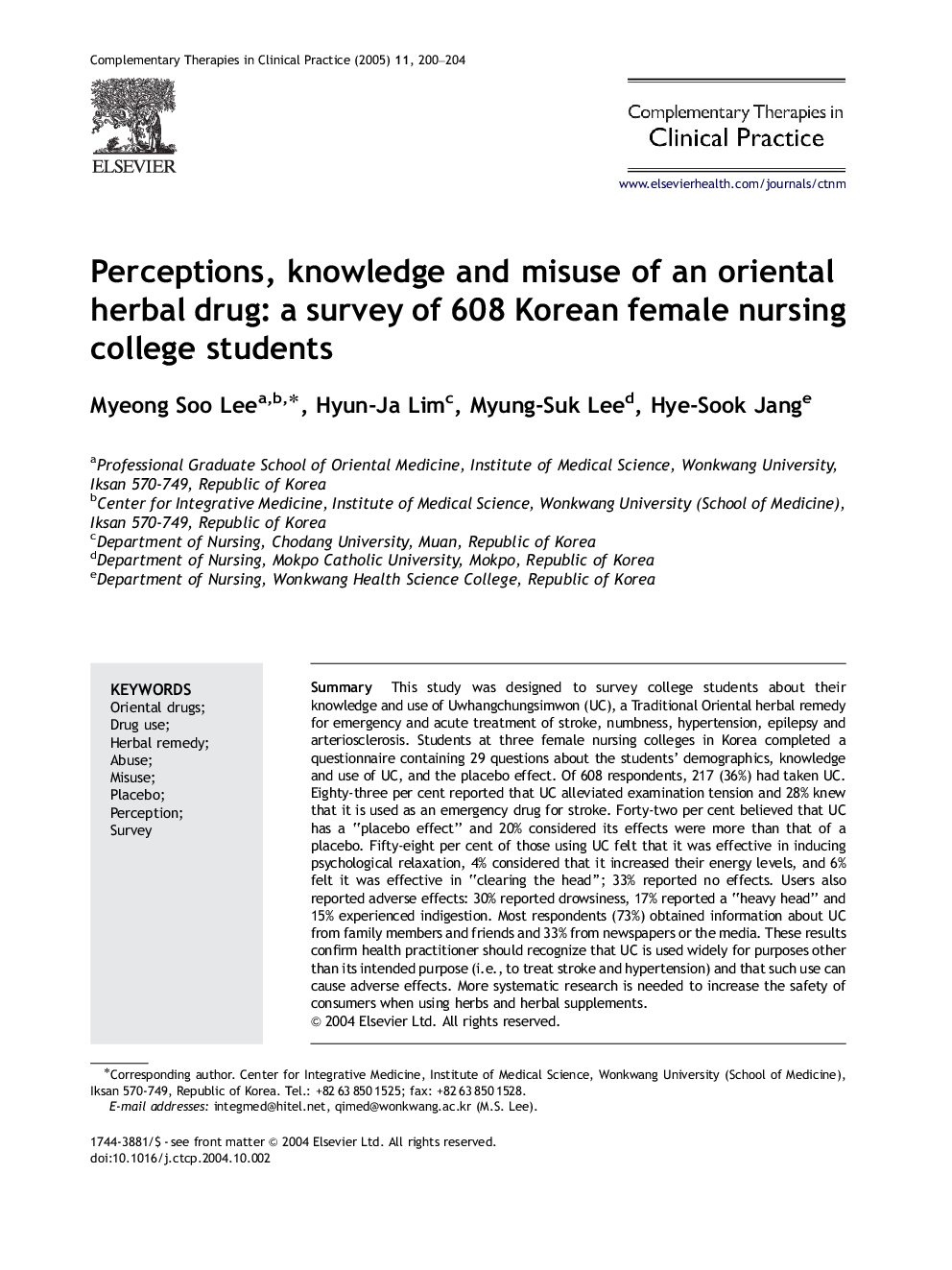| Article ID | Journal | Published Year | Pages | File Type |
|---|---|---|---|---|
| 9050964 | Complementary Therapies in Clinical Practice | 2005 | 5 Pages |
Abstract
This study was designed to survey college students about their knowledge and use of Uwhangchungsimwon (UC), a Traditional Oriental herbal remedy for emergency and acute treatment of stroke, numbness, hypertension, epilepsy and arteriosclerosis. Students at three female nursing colleges in Korea completed a questionnaire containing 29 questions about the students' demographics, knowledge and use of UC, and the placebo effect. Of 608 respondents, 217 (36%) had taken UC. Eighty-three per cent reported that UC alleviated examination tension and 28% knew that it is used as an emergency drug for stroke. Forty-two per cent believed that UC has a “placebo effect” and 20% considered its effects were more than that of a placebo. Fifty-eight per cent of those using UC felt that it was effective in inducing psychological relaxation, 4% considered that it increased their energy levels, and 6% felt it was effective in “clearing the head”; 33% reported no effects. Users also reported adverse effects: 30% reported drowsiness, 17% reported a “heavy head” and 15% experienced indigestion. Most respondents (73%) obtained information about UC from family members and friends and 33% from newspapers or the media. These results confirm health practitioner should recognize that UC is used widely for purposes other than its intended purpose (i.e., to treat stroke and hypertension) and that such use can cause adverse effects. More systematic research is needed to increase the safety of consumers when using herbs and herbal supplements.
Related Topics
Health Sciences
Medicine and Dentistry
Complementary and Alternative Medicine
Authors
Myeong Soo Lee, Hyun-Ja Lim, Myung-Suk Lee, Hye-Sook Jang,
